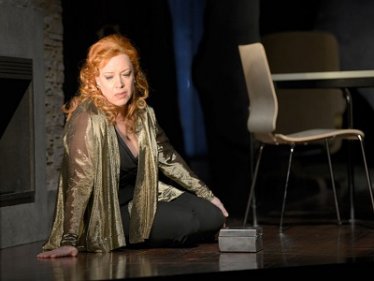Tristan und Isolde - Schedule, Program & Tickets
Tristan und Isolde
Date:
Time:
Price class:
Location:
13.07.2024 , Saturday
17:00
B
Deutsche Oper, Bismarckstraße 35, 10627 Berlin, Germany
A story in three acts
First performance on June 10, 1865 in Munich
Premiered at the Deutsche Oper Berlin on March 13, 2011
recommended from 16 years
5 hours / Two breaks
In German with German and English surtitles
Introduction: 45 minutes before the start of the performance in the foyer on the right
Betrayal, lost honor, guilt and atonement, passionate love that transcends borders and the longing for death and oblivion – the story of Tristan and Isolde, which grew from Celtic roots into a myth over the centuries, fascinated poets, poets and musicians alike. Richard Wagner inspired her to create his “opus metaphysicum” (Friedrich Nietzsche), a work that towers above his artistic output like a monolith.
Musically highly romantic and yet at the same time crossing the threshold of modernity, Wagner lets his couple run into a hopeless dilemma with existential relentlessness right from the start. Because the love between the two is absolutely inevitable, but also absolutely impossible: Tristan, that "sad man" who caused his mother's death at birth, loves Isolde, and yet he has her as his king's bride fed. In doing so, he commits a breach of faith, which puts this love under gloomy omens from the start and exposes him to himself as dishonorable. And Isolde is not innocent in the forbidden relationship either, as she spared Tristan, the murderer of her fiancé Morold, instead of killing him: a single look from Tristan was enough. Like a stranger, she moves in her life, in her familiar, home world.
TRISTAN UND ISOLDE not only has an exceptional position within Wagner's oeuvre, but has disturbed and fascinated its listeners to this day with its uncompromising, border-breaking portrayal of an obsessive, all-encompassing and determining love relationship. Writers, philosophers, psychologists have worked on it, composers and musicians have analyzed it, but without getting to the bottom of all its mysteries. The work, created after a myth, has itself become a myth. That we, its listeners and viewers, cannot settle comfortably in this myth because the story of this loving couple, although it seems to come from ancient times, is still much too close for us, is one of the many wonders of this work.
Subject to change.
First performance on June 10, 1865 in Munich
Premiered at the Deutsche Oper Berlin on March 13, 2011
recommended from 16 years
5 hours / Two breaks
In German with German and English surtitles
Introduction: 45 minutes before the start of the performance in the foyer on the right
Betrayal, lost honor, guilt and atonement, passionate love that transcends borders and the longing for death and oblivion – the story of Tristan and Isolde, which grew from Celtic roots into a myth over the centuries, fascinated poets, poets and musicians alike. Richard Wagner inspired her to create his “opus metaphysicum” (Friedrich Nietzsche), a work that towers above his artistic output like a monolith.
Musically highly romantic and yet at the same time crossing the threshold of modernity, Wagner lets his couple run into a hopeless dilemma with existential relentlessness right from the start. Because the love between the two is absolutely inevitable, but also absolutely impossible: Tristan, that "sad man" who caused his mother's death at birth, loves Isolde, and yet he has her as his king's bride fed. In doing so, he commits a breach of faith, which puts this love under gloomy omens from the start and exposes him to himself as dishonorable. And Isolde is not innocent in the forbidden relationship either, as she spared Tristan, the murderer of her fiancé Morold, instead of killing him: a single look from Tristan was enough. Like a stranger, she moves in her life, in her familiar, home world.
TRISTAN UND ISOLDE not only has an exceptional position within Wagner's oeuvre, but has disturbed and fascinated its listeners to this day with its uncompromising, border-breaking portrayal of an obsessive, all-encompassing and determining love relationship. Writers, philosophers, psychologists have worked on it, composers and musicians have analyzed it, but without getting to the bottom of all its mysteries. The work, created after a myth, has itself become a myth. That we, its listeners and viewers, cannot settle comfortably in this myth because the story of this loving couple, although it seems to come from ancient times, is still much too close for us, is one of the many wonders of this work.
Subject to change.



